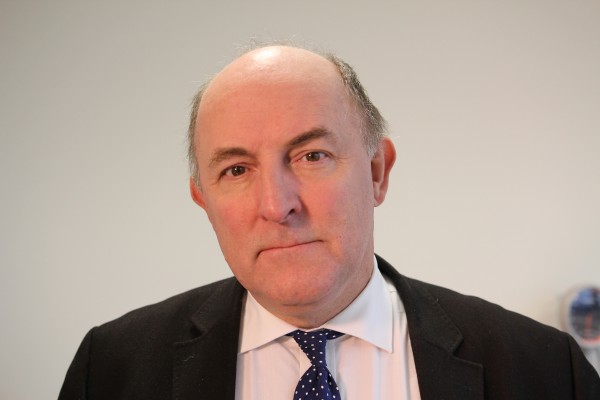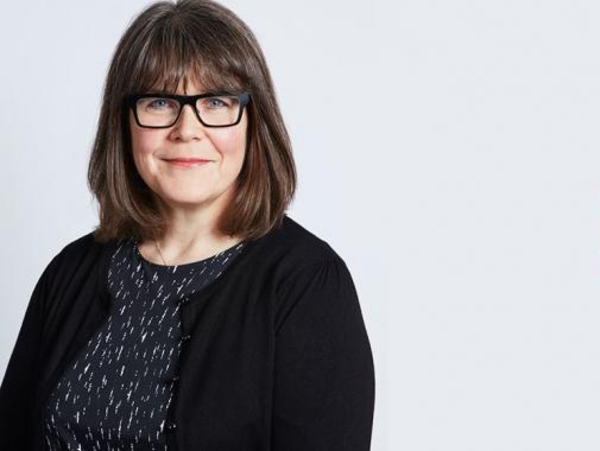Annual Screening Detects Breast Cancers Earlier for Women Aged 35-39 with a Family History, Major UK Trial Finds
Annual screening for younger women aged 35-39 who have a family history of breast cancer would be effective in detecting tumours earlier, a major UK trial has found.
- UK trial finds breast screening in women aged 35-39 who are at moderate or high risk detects cancers which are significantly smaller in size and less likely to have spread to lymph nodes.
- First long-term study suggests annual breast screening for women at increased risk could be extended from 40-49 to ages 35-39 – which could benefit up to 86,000 UK women each year.
The trial, funded by charity Breast Cancer Now, found that annual mammograms for women aged 35-39 at moderate or high risk of breast cancer, detected tumours when they were significantly smaller in size and less likely to have spread to the lymph nodes, than in an unscreened cohort.
Based on the findings, leading UK clinicians and researchers suggest that regular screening in women identified at moderate or high risk of breast cancer, could be extended from ages 40-49 to also include women aged 35-39.
While more women are now surviving the disease than ever before, breast cancer remains the leading cause of death in women under 50 in England and Wales – with over 920 women under 50 losing their lives to the disease in 2017. Breast cancer is the UK’s most common cancer, with around 55,000 women and 350 men being diagnosed each year in the UK – and it is estimated that around 5-15% of cases are linked to a family history of the disease.
Women with a significant family history of breast cancer can be referred by their GP to specialist services for an assessment of their risk, as well as support including information about available monitoring and risk-reducing options such as chemoprevention, lifestyle advice or preventive surgery.
A specialist will consider the pattern of these familial cancers, including ages at diagnosis, and other factors such as a woman’s age or any prior breast or ovarian cancers – giving an overall estimate as to whether they are at ‘moderate’ (17-29% lifetime risk), ‘high’ (30% or higher lifetime risk) or ‘general population’ risk (~11% lifetime risk).
With early detection offering the best survival outcomes for breast cancer patients, NICE guidelines currently recommend annual screening for women aged 40-49 in England who are identified as being at ‘moderate’ or ‘high’ risk of the disease – following evidence of the benefit in this group reported in the FH01 trial in 2010.
Our trial shows that mammography screening is effective in detecting tumours earlier in this younger age group, and lays the groundwork for extending this screening in women at moderate or high risk down to women aged 35-39 from ages 40-49.
Professor Gareth Evans, Cancer Prevention and Early Detection Theme Lead, Manchester BRC
In a new prospective trial in younger women (FH02), led by Manchester BRC and the University of Manchester’s Professor Gareth Evans, 2,899 women aged 35-39 at moderate or high risk of breast cancer due to their family history, were offered annual screening across 34 UK centres between 2006 and 2015.
In total, 50 breast cancers were detected (in 49 women), of which 35 were invasive tumours. Of the 35 invasive breast cancers, 80% (28/35) were detected by screening when the tumour was 2cm or smaller in size, and only 20% (7/35) had spread to the patients’ lymph nodes.
The trial compared the results to an unscreened cohort of women aged 35-39 and at increased risk in the POSH trial – with annual screening being shown to nearly double the proportion of tumours detected before they were over 2cm in size. In unscreened women, just 45% (131/293) of breast cancers were detected when the tumour was 2cm or smaller in size and 54% (158/290) of cases had already spread to the lymph nodes.
Further health economic analysis will now be needed to determine the full benefits and risks in this age group, including whether this screening may be limited to those with a ‘high’ chance of developing breast cancer (rather than ‘high’ and ‘moderate’) – as well as longer-term follow up to understand any impact of the radiation dose on women’s risk of future cancers.
If extended to women aged 35-39 identified at ‘moderate’ and ‘high’ risk in the future, using the current NICE family history criteria, the researchers estimate that up to 3-4% of the female population aged 35-39 may be eligible for annual screening – between 64,000-86,000 women in the UK.
Leading charity Breast Cancer Now today called for the upcoming review of NHS cancer screening programmes to include an assessment of family history services across the country, and to set out the health economic evidence required to consider extending screening to women aged 35-39 at moderate or high risk due to their family history.
With several risk prediction models in development, it is also hoped that the inclusion of information about small genetic changes that increase breast cancer risk (known as SNPs) and women’s breast density could in future help give an even more accurate estimation of breast cancer risk – and could help adapt the NHS Breast Screening Programme to offer more targeted, ‘risk-stratified’ screening.
The results of the FH02 trial are published today in The Lancet’s online journal EClinicalMedicine.

Lead author Professor Gareth Evans, Professor in Medical Genetics and Cancer Epidemiology at The University of Manchester, and Cancer Prevention and Early Detection Theme Lead at the NIHR Manchester Biomedical Research Centre, said:
“These are the first significant data on the benefits of screening in women aged 35-39 who are at increased risk of breast cancer due to a family history, and the results are very promising.”
“Our trial shows that mammography screening is effective in detecting tumours earlier in this younger age group, and lays the groundwork for extending this screening in women at moderate or high risk down to women aged 35-39 from ages 40-49.”
“Overdiagnosis is also far less likely to be a major issue in such a young age group. For women with a family history, removing a non-invasive tumour so early in their lives is likely to be a cancer preventive. You only need to look at current long-term survival outcomes in this group to see just how important new early detection methods could be.”
“Longer-term follow-up is now required to determine the impact of this screening on women’s overall survival and any impact on their future risk of primary breast cancer – while health economic analysis will be needed to assess whether such screening could be extended to both moderate and high risk women.”
Baroness Delyth Morgan, Chief Executive at Breast Cancer Now, which funded the trial, said:
“This could be an enormous breakthrough on early detection in young women with a family history of breast cancer. We believe these findings could be practice-changing, and urge the Government’s upcoming review of NHS screening programmes to set out what further evidence will be needed to consider annual screening for women aged 35-39 who are at increased familial risk of breast cancer.”

“Early detection remains absolutely critical to stopping women dying from breast cancer. The earlier the disease is found, the more likely treatment is to be successful – and this major trial suggests that screening could be vital in women as young as 35 who we know are at increased risk.”
“With breast cancer still the leading cause of death in women under 50, we need to find ways to identify those most at risk and offer them interventions earlier. We’ve long known that a family history can define a woman’s risk, and that breast cancer can be more aggressive in younger women. So, if we can intervene earlier for those at higher risk through annual screening, we believe we may be able to stop the disease cutting so many women’s lives so heartbreakingly short.”
“While we now need to understand the full balance of risks, costs and benefits of mammography in this group, we are extremely excited by the potential to adapt our world-class NHS screening services to prevent more deaths from breast cancer in younger women.”
“In the meantime, we’d encourage any women concerned about their family history of breast cancer to speak to their GP, and to check their breasts regularly. Just get to know what looks and feels normal for you, check regularly, and report any unusual changes to your GP. It could save your life.”
For women currently aged 35-39 who have already been identified at moderate or high risk, Baroness Morgan added:
“While this trial is really encouraging, these are the first results to show that screening would be effective for this age group – and it may still be some time before this option could be extended to women aged 35-39.
“In the absence of screening, it is so important for women at increased risk to remain breast aware and to report any unusual changes in your breasts to your doctor. Please do speak to your GP if you have any concerns at all or if you’d like to discuss the options available to you in more detail.”
The FH02 trial was led by the FH02 study group across 34 UK centres, and was funded by Breast Cancer Now – with additional support from the NIHR Manchester Biomedical Research Centre.